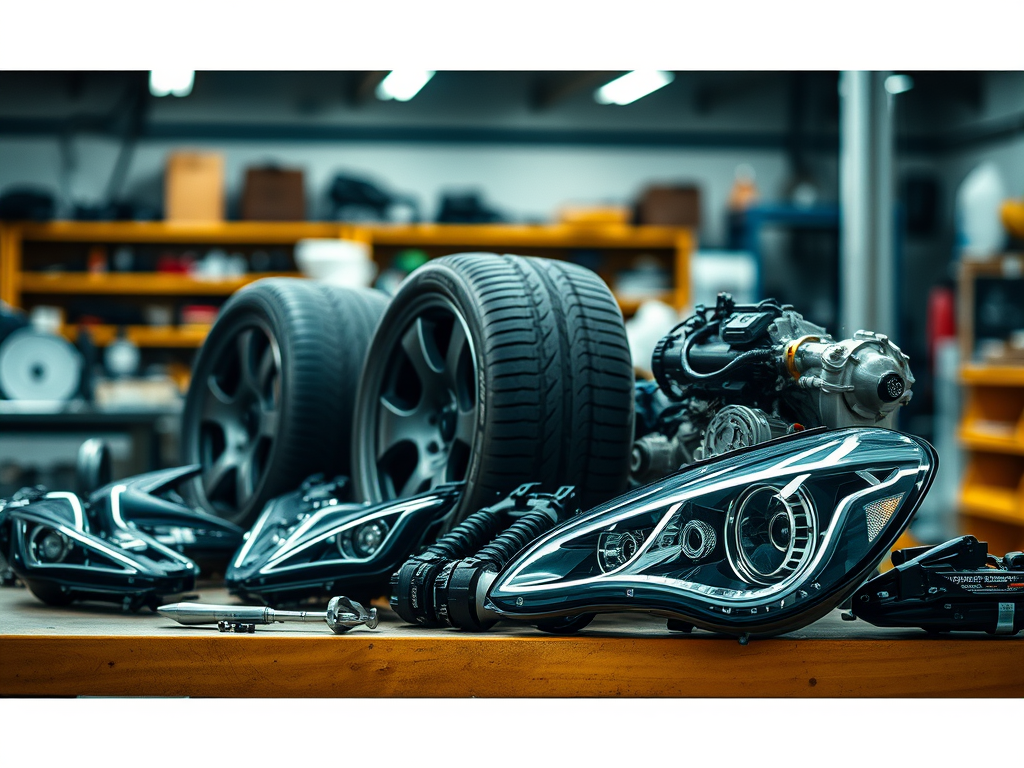
The Indian auto parts market is on the brink of significant transformation, with the automotive industry evolving rapidly. As India sets its sights on becoming a global automotive hub, the auto parts industry is gearing up for growth driven by technological advancements, regulatory changes, and evolving consumer preferences. With a focus on OEM-quality auto components, electric vehicle parts, and aftermarket services, the market presents numerous opportunities and challenges for manufacturers and suppliers.
A Market Primed for Growth
The Indian auto parts market has consistently expanded over the past decade, reaching an estimated value of $56.5 billion in 2023. Factors contributing to this growth include the increasing production of vehicles, the surge in electric and hybrid vehicles, and a growing focus on aftermarket services. Government initiatives like “Make in India” and the Automotive Mission Plan (AMP) 2016-26 aim to position India as a leader in automotive manufacturing and auto component development, providing a significant boost to the industry.
The push toward domestic manufacturing and the implementation of favorable policies have attracted investments in the auto parts sector. As a result, India is becoming a key player in the global auto components market, offering high-quality, cost-effective solutions to OEMs and the aftermarket segment.
Key Trends Shaping the Future of the Indian Auto Parts Market
- Shift Towards Electric Vehicles (EVs):
One of the most significant trends reshaping the Indian auto parts market is the rapid transition toward electric vehicles. With the Indian government’s target of 30% electric vehicle adoption by 2030, the demand for EV-specific components such as batteries, electric motors, and advanced electronics is on the rise.Auto parts manufacturers are investing in research and development to produce high-quality EV components and ensure their product lines remain relevant in this changing landscape. This shift presents a dual opportunity: serving the growing EV market while driving technological innovation within the auto parts sector. - Digital Transformation and Smart Manufacturing:
The rise of Industry 4.0 technologies, including the Internet of Things (IoT), artificial intelligence (AI), robotics, and data analytics, is revolutionizing the auto parts manufacturing process. By adopting smart manufacturing practices, Indian manufacturers can enhance efficiency, precision, and flexibility, resulting in the production of high-quality auto components that meet global standards.Furthermore, digital transformation is impacting the way auto parts are marketed and distributed. E-commerce platforms and digital B2B marketplaces are becoming crucial for reaching customers, streamlining procurement, and providing a personalized buying experience. Manufacturers embracing these digital trends are gaining a competitive edge in the Indian and global markets. - Growth of the Aftermarket Segment:
The automotive aftermarket segment in India is set to grow rapidly due to the increasing vehicle population and the need for regular maintenance and replacement parts. This segment encompasses products such as filters, brakes, suspension parts, and electrical components. For auto parts manufacturers, this presents a lucrative opportunity to offer high-quality, reliable products at competitive prices.Companies like Raimco Automotive, specializing in precision-engineered auto parts for European vehicles, are well-positioned to capitalize on this trend. By focusing on OEM-quality components and ensuring their products meet stringent industry standards, these companies can build trust with B2B customers seeking dependable aftermarket solutions. - Global Expansion and Export Opportunities:
Indian auto parts manufacturers are increasingly targeting global markets, particularly in Europe, North America, and the Middle East, where there is high demand for cost-effective, quality components. To compete internationally, Indian companies are adhering to global quality standards, investing in advanced manufacturing technologies, and enhancing their R&D capabilities.By offering auto parts that meet the stringent requirements of global automakers, Indian manufacturers can tap into the growing demand worldwide. The focus on exporting auto components is expected to boost India’s presence in the global automotive supply chain.
Challenges and Opportunities in the Indian Auto Parts Industry
Despite the promising outlook, the Indian auto parts industry faces several challenges. The transition to electric vehicles requires a complete overhaul of the traditional auto parts manufacturing ecosystem, involving significant capital investment and technological upgrades. Additionally, global supply chain disruptions, fluctuating raw material prices, and stringent environmental regulations pose ongoing challenges.
However, these challenges also present opportunities for innovation. Manufacturers that can navigate these complexities by embracing new technologies, diversifying their product portfolios, and focusing on sustainability will thrive in the evolving landscape.
Opportunities for B2B Platforms like Raimco Automotive
The B2B segment in the auto parts market is undergoing a paradigm shift. Businesses are increasingly seeking reliable suppliers who offer quality products, timely delivery, and competitive pricing. B2B platforms like Raimco Automotive, which provide a comprehensive range of high-quality components for European vehicles, are poised to capitalize on this demand. By leveraging digital channels and focusing on customer-centric solutions, these platforms can expand their reach and establish long-term partnerships with clients.
Conclusion
The future of the Indian auto parts market is characterized by growth, technological advancements, and a move towards sustainable practices. While challenges exist, the industry’s resilience and adaptability indicate a promising road ahead. Companies like Raimco Automotive, with their emphasis on quality, innovation, and customer satisfaction, are set to play a pivotal role in shaping the future of this dynamic market.
As the industry navigates this transformative journey, collaboration among manufacturers, suppliers, and policymakers will be crucial to building a robust, sustainable, and globally competitive auto parts ecosystem. The coming years will be vital in defining the trajectory of the Indian auto parts market, cementing its status as a key player on the global stage.
